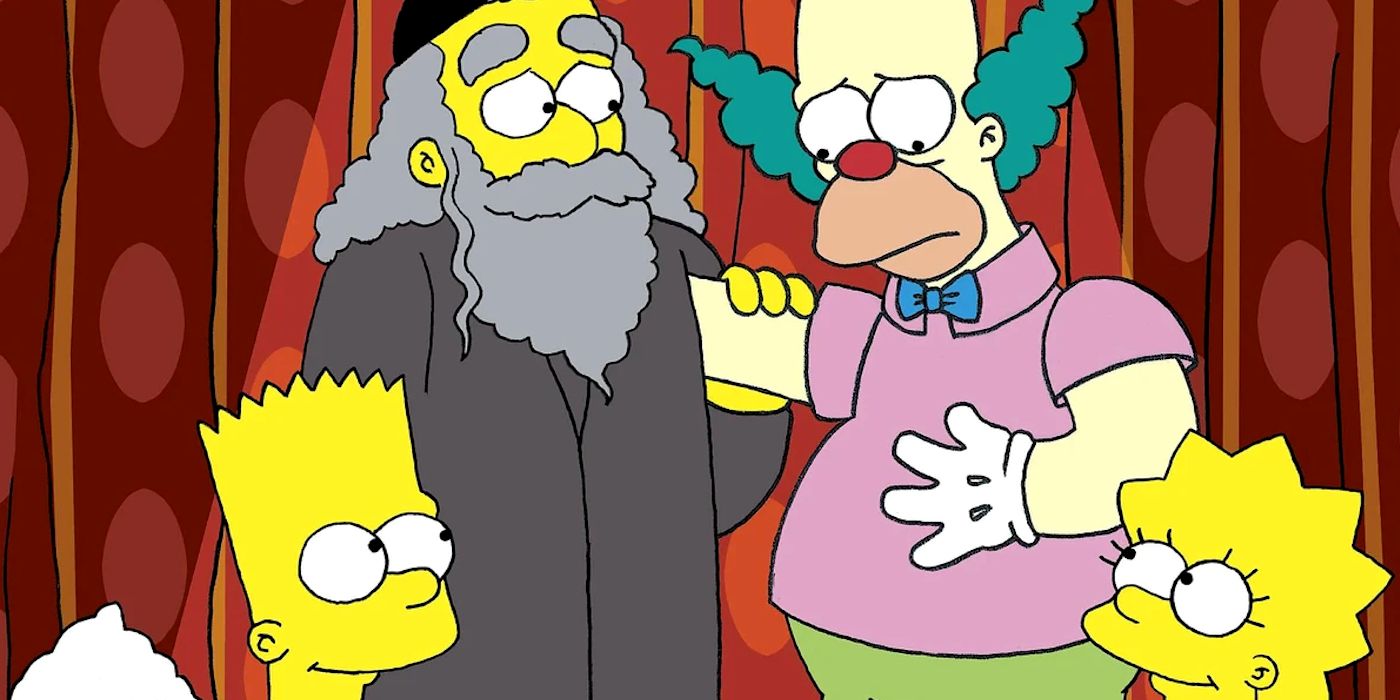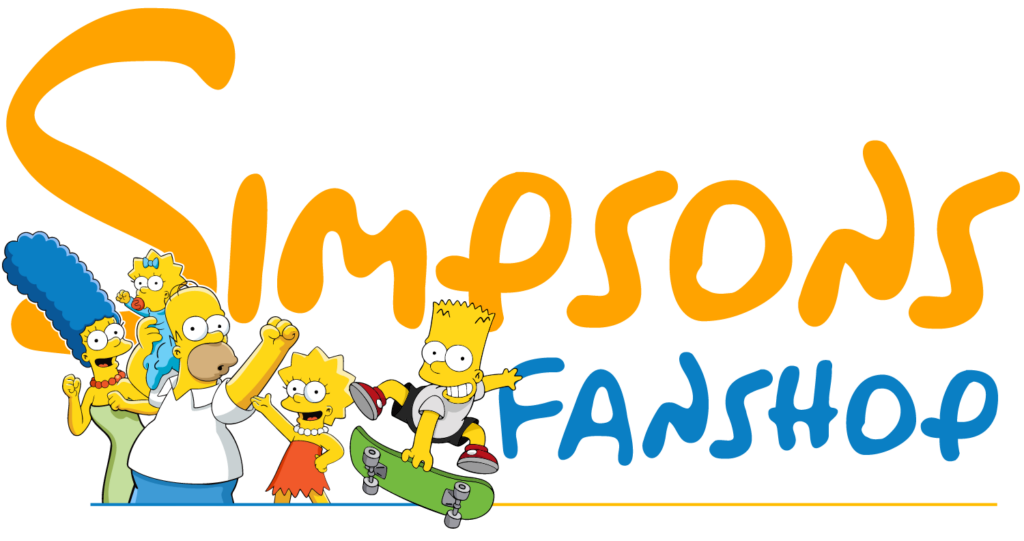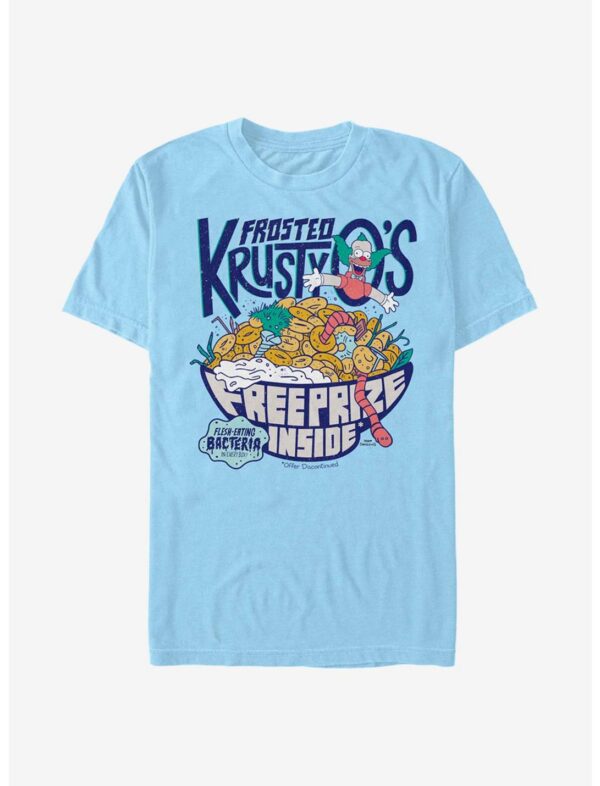Uncategorized
Krusty Simpsons the Clown: From Beloved Children’s Entertainer to Pop Culture Icon
Krusty the Clown stands as one of The Simpsons’ most iconic and complex characters, embodying the show’s satirical genius through his dual nature as both beloved children’s entertainer and cynical showbiz veteran. Since his debut in the early seasons, Krusty Simpsons has evolved from a simple cartoon clown into a multi-layered character that reflects the darker side of celebrity culture while maintaining his essential role in Springfield’s entertainment landscape.

Whether you’re a longtime fan of the yellow family or discovering Krusty’s antics for the first time, this comprehensive guide explores everything from his character development to his impact on popular culture, plus the amazing Krusty Simpsons merchandise that celebrates this unforgettable clown.
Who Is Krusty the Clown? Character Origins and Background
Krusty the Clown, whose real name is Herschel Shmoikel Pinchas Yerucham Krustofsky, serves as the host of “The Krusty the Clown Show” in Springfield. Created by Matt Groening and developed by the show’s writing team, Krusty represents the archetypal burnt-out entertainer who has lost touch with his original passion for making children laugh.
The character’s genius lies in his contradiction: while children adore him, adults see through his facade to the chain-smoking, gambling-addicted performer underneath. This duality makes Krusty one of television’s most realistic portrayals of celebrity culture, despite being an animated clown.

His Jewish heritage, revealed through his relationship with his rabbi father, adds another layer of depth rarely seen in animated characters. This background has provided some of the series’ most touching moments, particularly in episodes exploring family relationships and cultural identity.
Krusty’s Role in The Simpsons Universe
Within Springfield’s ecosystem, Krusty the Clown serves multiple narrative functions. He’s simultaneously a celebrity figure, a father figure to Bart and Lisa (through his show), and a representation of the entertainment industry’s impact on childhood development.
The character often appears in episodes that satirize various aspects of show business, from product endorsements gone wrong to comeback attempts. His interactions with other Springfield residents, particularly the Simpson family, highlight the disconnect between public personas and private realities.
“Hey hey kids! It’s time for another exciting episode of The Krusty the Clown Show!” – Krusty’s iconic opening line has become synonymous with childhood entertainment in The Simpsons universe.
Krusty’s show also serves as a platform for introducing other memorable characters like Sideshow Bob and Sideshow Mel, creating a rich supporting cast that extends the character’s influence throughout the series.
The Evolution of Krusty Throughout The Simpsons Seasons
From his early appearances as a simple children’s show host, Krusty has undergone significant character development across The Simpsons’ long run. Early episodes established his basic personality traits: the cheerful public face hiding a world-weary private persona.

As the series progressed, writers delved deeper into his backstory, revealing his complicated relationship with his father, his struggles with addiction, and his various business ventures. These developments transformed him from a one-dimensional joke into a fully realized character with genuine emotional depth.
Recent seasons have shown Krusty adapting to modern entertainment trends, from social media to streaming platforms, while maintaining his essential character traits. This evolution keeps the character relevant while preserving what fans love about him.
Iconic Krusty Episodes and Memorable Moments
Several episodes have elevated Krusty the Clown from supporting character to emotional centerpiece of The Simpsons. “Krusty Gets Kancelled” introduced viewers to his vulnerable side when his show faced cancellation, while “Like Father, Like Clown” explored his Jewish heritage and family relationships.
- “Krusty Gets Busted” – The episode that first revealed Krusty’s complexity through his framing and subsequent exoneration
- “Krusty Gets Kancelled” – His comeback story that showcased his resilience and dedication to entertainment
- “Like Father, Like Clown” – The touching reconciliation with his rabbi father
- “Krusty the Klown’s Wedding” – His romantic pursuits and personal growth

These episodes demonstrate how The Simpsons uses Krusty to explore themes of redemption, family relationships, and the cost of fame. Each memorable moment adds layers to his character while entertaining audiences.
Krusty’s Relationship with Bart and Lisa Simpson
The dynamic between Krusty and the Simpson children, particularly Bart, represents one of the show’s most interesting relationships. Bart’s unwavering faith in Krusty, even when evidence suggests otherwise, reflects childhood innocence and the power of entertainment figures in young lives.
Lisa’s more analytical approach to Krusty provides a counterpoint, often seeing through his facade while still appreciating his entertainment value. This dual perspective from the Simpson children mirrors the adult audience’s complex relationship with the character.

Their interactions often drive episodes forward, with Bart and Lisa either defending Krusty or helping him overcome various crises. This relationship humanizes the clown while exploring themes of childhood disillusionment and growing up.
The Cultural Impact of Krusty the Clown
Krusty’s influence extends far beyond The Simpsons, becoming a cultural touchstone for discussions about children’s entertainment, celebrity culture, and the commercialization of childhood. His character has inspired academic analysis, parody, and countless references in other media.
The character’s design and personality have influenced other animated clowns and entertainers in various shows and movies. His impact on popular culture demonstrates The Simpsons’ broader influence on how we perceive and discuss entertainment figures.
Cultural critics have noted that Krusty represents a prescient commentary on how celebrity culture affects both entertainers and their audiences, particularly children who may not understand the complexities behind their favorite performers.
Merchandise and collectibles featuring Krusty have become highly sought after, reflecting his status as both a beloved character and a symbol of quality animation. From action figures to clothing, Krusty-themed products continue to find enthusiastic audiences.
Krusty’s Most Famous Quotes and Catchphrases
The dialogue associated with Krusty the Clown has become part of The Simpsons’ linguistic legacy. His catchphrases and memorable quotes reflect both his public persona and private struggles, creating quotable moments that resonate with fans.
Some of his most memorable lines include his show opening, various product endorsements, and moments of genuine emotion. These quotes have become part of fan culture, appearing on merchandise, social media, and in everyday conversation among Simpsons enthusiasts.
- “Hey hey, kids!” – His signature greeting that opens every show
- “I’m not a clown! I’m a respected performer!” – Revealing his professional insecurities
- “What the hell was that?” – His frequent reaction to chaos on his show
The Psychology Behind Krusty’s Character Design
The visual design of Krusty the Clown deliberately subverts traditional clown imagery to create psychological complexity. His permanently applied makeup suggests an inability to separate his public and private selves, while his tired expressions hint at the exhaustion beneath the entertainment.
Color psychology plays a role in his design, with the bright primary colors of his costume contrasting sharply with his world-weary demeanor. This visual contradiction reinforces the character’s central theme of appearance versus reality.
The artists’ choice to make his makeup appear slightly smudged or imperfect adds to his authenticity, making him more relatable than a perfectly polished cartoon character. This attention to detail contributes to his lasting appeal among fans.
Krusty Merchandise: Celebrating the Iconic Clown
The popularity of Krusty the Clown has spawned an impressive array of merchandise that celebrates this complex character. From vintage collectibles to modern apparel, Krusty-themed products offer fans multiple ways to express their appreciation for this iconic entertainer.
Premium Simpsons merchandise featuring Krusty includes everything from detailed action figures to clothing that captures his distinctive style. These products appeal to both collectors and casual fans who want to incorporate a piece of Springfield into their daily lives.
Popular Krusty merchandise categories include:
- Apparel – T-shirts, hoodies, and accessories featuring Krusty’s image and quotes
- Collectibles – Limited edition figures, pins, and memorabilia
- Home goods – Mugs, posters, and decorative items for Simpsons fans
- Accessories – Phone cases, bags, and everyday items with Krusty themes
Why Krusty Remains Relevant in Modern Entertainment
Despite being created decades ago, Krusty the Clown remains remarkably relevant to contemporary discussions about entertainment, social media, and celebrity culture. His struggles with authenticity in an image-driven industry mirror modern influencer culture and the pressures faced by today’s entertainers.
The character’s exploration of work-life balance, particularly for those in entertainment industries, resonates with modern audiences who understand the challenges of maintaining public personas while dealing with private struggles.
Recent episodes have successfully updated Krusty’s character for the digital age while preserving what makes him special. This adaptability ensures his continued relevance for new generations of Simpsons fans.
Frequently Asked Questions About Krusty the Clown
What is Krusty’s real name?
Krusty’s real name is Herschel Shmoikel Pinchas Yerucham Krustofsky, reflecting his Jewish heritage and providing insight into his complex family background that has been explored throughout the series.
Who voices Krusty the Clown?
Dan Castellaneta, who also voices Homer Simpson, provides the voice for Krusty the Clown. His performance captures both the character’s public enthusiasm and private cynicism perfectly.
What episodes focus on Krusty’s character development?
Key episodes include “Like Father, Like Clown,” “Krusty Gets Kancelled,” and “Krusty Gets Busted,” each exploring different aspects of his personality and background while advancing his character development.
The Legacy of Krusty in Animation History
Krusty the Clown represents a significant achievement in animated character development, demonstrating how cartoon characters can address serious themes while remaining entertaining. His influence on subsequent animated shows is evident in how other series approach complex character development.
The character’s success lies in his ability to function on multiple levels: as straightforward entertainment for younger viewers and as sophisticated commentary for adults. This multi-layered approach has become a hallmark of quality animation.

Animation historians recognize Krusty as a pivotal character in establishing how animated series could explore mature themes through seemingly simple characters, paving the way for more sophisticated storytelling in the medium.
Conclusion: Why Krusty the Clown Endures
Krusty the Clown endures as one of The Simpsons’ most compelling characters because he embodies universal themes while remaining uniquely entertaining. His journey from simple children’s entertainer to complex cultural figure mirrors our own understanding of how entertainment shapes society.
The character’s lasting appeal stems from his authenticity within the animated world of Springfield. Despite his flaws and contradictions, or perhaps because of them, Krusty remains relatable and human in ways that transcend his cartoon origins.
For fans looking to celebrate this iconic character, exploring the wide range of Krusty Simpsons merchandise available offers the perfect way to keep a piece of Springfield’s entertainment legacy close at hand. Whether you’re drawn to his humor, complexity, or cultural significance, Krusty the Clown continues to prove that the best animated characters are those that make us laugh while making us think.


